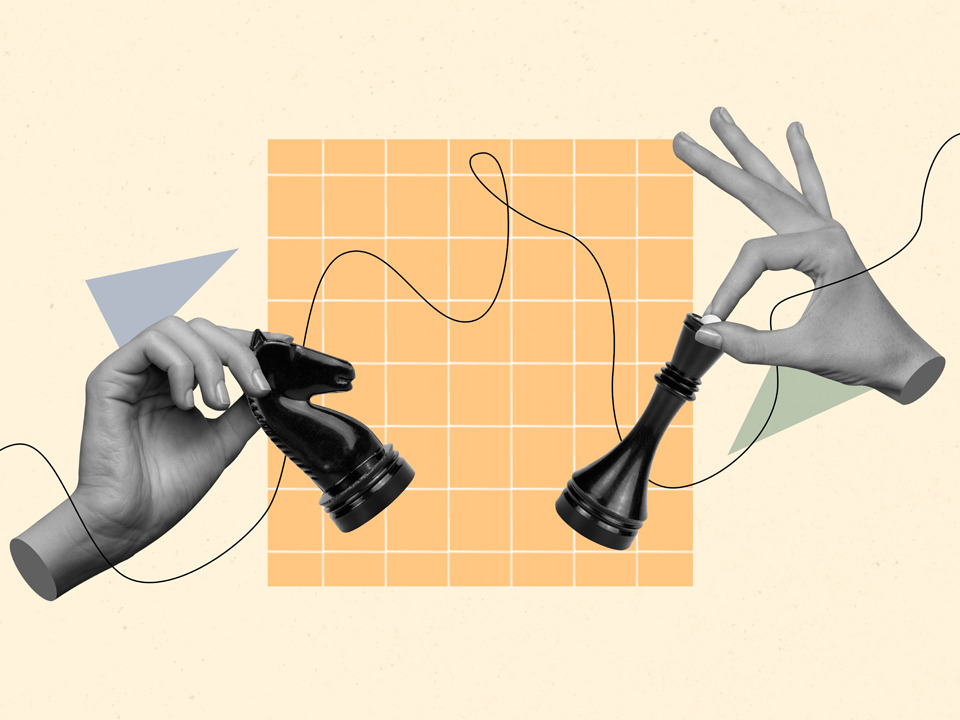Face to face with Barack Obama: Ten vital lessons from a world-class leader

By Ben Tiggelaar *
On Friday September 28, 2018, at six o’clock in the evening, I sat face to face with Mr. Barack Obama, the 44th president of the United States of America. It was my job to interview Mr. Obama for an hour in front of an audience of 3,500 people, as part of the Forward Thinking Leadership conference in Amsterdam. Throughout the interview, Mr. Obama was exceptionally candid, sharing with us much of his wisdom and lessons in leadership. Here are my ten most important take-aways from our conversation.
1. Leadership starts with listening
Throughout Mr. Obama’s presidency, he put into practice one extraordinary habit: Every evening, he would read ten letters from ordinary American citizens. Every evening for eight years. To ensure that the voices from society would be heard within the ‘bubble’ of the White House. “I would end every night reading these ten letters. It made the numbers and the policies very concrete and very specific. And I was reminded that the choices we were making were affecting millions of people. I found that to be very useful. I think every organization needs to have some feedback mechanism to break through the bubble. You have to make sure that you keep hearing the voices from the outside.” It is one of the most important lessons that Mr. Obama now teaches to the young leaders who participate in the training programs of his Obama Foundation: Leadership starts with listening.
2. Balance the long term and the short term
When Mr. Obama was elected president, in November 2008, the worst economic crisis in decades had just broken out. How do you hold on to your long-term plans in the midst of all kinds of crises? “The United States was losing 800,000 jobs a month when I came into office. The first thing you have to do, as with any emergency, is: stabilize. If you have a heart attack, your first job is to stabilize and then you can start thinking about: I need to lose weight, I need to quit smoking, whatever it is. But first make sure your heart is actually still beating.” In addition to taking a number of major economic and financial measures in the first months of his presidency, Mr. Obama did several things to stay on course. Like appointing very experienced people who were accustomed to dealing with crises. “You have to be able to rely on your employees, so that you can focus on the question: What is the right direction? My job as a president was setting the direction, and making sure we were doing the right things.”
3. Make sure your staff stays out of prison
Another essential for staying on course is a culture that prevents your employees from making a mess of things. Mr. Obama: “I was the first president in a very long time that didn’t have a scandal and didn’t have somebody in the administration who got indicted or sent to prison.” One of the first things Mr. Obama did after taking office was to set up an ‘ethics office’. He drafted a few simple rules, like: If a meeting is too much fun, you can not attend. “When people wanted to do certain things, they had to check. One of the rules in the ethics office was: If it’s fun, you can’t do it. For example: A conference in Hawaii, can I go there? No, sorry, that’s too much fun, you can’t go. Now, if it’s in some cold place in the middle of winter, go ahead. Feel free.” “What that does is that it orients the entire organization around: This is how we operate, this is who we are, this is what we stand for. And that eliminates a lot of the distractions.”
4. Good communication starts with honesty
Mr. Obama is widely regarded as one of the most brilliant speakers of our time. What is his secret, what are his most important learnings in this field? According to Mr. Obama it all starts with telling your own story. “You know, the tricks of charisma, and speaking with a certain style and tone, all that stuff is overrated. Here’s the thing that any effective communication requires: That you believe what you say. That you have taken the time to think through what it is that’s important, and you say it as truthfully and as clearly as you can.” “Part of the reason that the big speeches I have given have gone relatively well is that I sat down and I thought about: What is it that I believe? So that by the time I spoke, people sensed conviction. Even if they didn’t agree with every particular thing.” “So much of our communications today is sound bites, just disposable. We say whatever we think the immediate moment requires. What is expedient. Opposed to really digging in and thinking: Is that what I think?”
5. Deploy the power of stories Mr. Obama loves storytelling.
“Part of what separates us from the other creatures on earth is that we make up stories. We are storytellers. And we can tell bad stories and we can tell good stories. We can tell stories that lead to division and hate and war. Or we can tell stories that lead to cooperation and peace and progress.” “When I first addressed the nation, in 2004 at the Convention, really all I did was that I told people: Here is my story and here is how it connects to the story of America. And the story of America is one of change and progress. And that is scary, but look how far it has brought us.” “Change is scary. It’s hard in our own individual lives and it is certainly hard societally. Part of the job of a good leader is to tell a good story. Now each country, each community, each organization has its own story. But you have to be able to ground whatever changes you think your organization, your community, your country needs, in a longer story of where we have been and where we are going and where we are.”
6. Quick changes sometimes lead to a relapse
In his book The World As It Is, Mr. Obama’s longtime friend and adviser Ben Rhodes described Mr. Obama’s reaction to the victory of Donald Trump in November 2016. “Maybe we pushed too far,” he reportedly said to Rhodes. “Sometimes I wonder whether I was ten or twenty years too early.” How should we interpret these comments in Mr. Rhodes’s book? Mr. Obama: “I think Ben was capturing accurately a moment in time where you say to yourself: Huh, I did not expect that to happen. I was still processing it. And I think there is no doubt that part of what we saw in the United States, but also here in Europe, was a backlash of people pushing back against what they considered to be very rapid change.” “What I was referring to when I said: Maybe I was ten, twenty years ahead of time… I was being very specific about the fact that the United States is going through significant demographic changes. The majority of six- and seven-year-olds in the United States are not white. That is a pretty significant demographic change. And in some ways my election reflected America’s future.” White is no longer the norm in the USA, and according to Mr. Obama it was clear that someone like him would become president eventually. But it happened much faster than many people, including himself, had expected.
7. Stay optimistic, meet with young people
How does Mr. Obama feel about the fact that his successor, President Trump, is trying to demolish as much of his legacy as possible? “Well… But they are not being demolished. This is the nature of life. It is the nature of progress. History does not move in a straight line. You take two steps forward and there is a step back. But that does not leave me less optimistic about our ability to move forward.” But how does he stay hopeful? “What makes me optimistic is young people. I was very deliberate during my presidency in meeting young people in every country that I visited. And I would have roundtable discussions. If I was going to be in a country for two or three days, one of the events that I would always do was with college students or young people. That always made you hopeful and optimistic.” “They are far more comfortable with differences between people. They are far more comfortable with the fact that they are probably not going to have one job that they keep for 30 or 40 years. That the economy requires innovation and critical thinking and entrepreneurship. And they are not fearful of that. You find that in Africa, you find that in Asia, you find that in Latin America, Europe, everywhere. So, the question is whether the old people can get out of the way. And not screw things up so badly before we hand off responsibility to the young people that it is too hard for them to fix.”
8. You have to make an effort to stay normal
How do you stay normal when even your best friends have to address you as Mister President? Mr. Obama: “One of the things that Michelle and I are proud of is that we came through the White House with our souls intact. Everybody has heard: Power corrupts. I do think if you are placed in such an artificial situation, and your office has great importance, there is a tendency for people to want to please you. To not be as honest with you. We fought against that.” “Number one: we invited my mother-in-law to live with us. I love her. She used to work as a secretary, she raised Michelle and her brother in very modest circumstances. Having her there, also for our children, was important. Also, what was helpful, was that Michelle and I were not famous until we were in our forties. We had lived normal lives. We had taken our children to school, and washed our cars ourselves and had to go to the grocery store and then cook dinner. We had gone through the stresses and strains and the great joys of a more ordinary life.” “But I think probably the most important thing for me as president was always reminding myself that I was in this job temporarily. It was an extraordinary privilege. But I used to describe it as being like a relay runner. You take the baton. You run your race. You pass it on.”
9. It is vitally important to display a sense of humor
How important is humor? Many people regard Mr. Obama as having a wonderful sense of humor and a healthy dose of self-mockery. Mr. Obama, grinning: “Well, there is no doubt about that.” Humor is an important tool, according to Mr. Obama. When you take your work seriously, it helps if you don’t take yourself too seriously. “So, here is what I think that a sense of humor does: I think a sense of humor is an expression of perspective. And in stressful, challenging situations, in which you are making big decisions, being able to have some perspective and not take yourself too seriously, even while you take your work very seriously, is very useful. It is important. The danger of you taking yourself seriously is that you begin to think that what’s important is you. Whereas in fact what is important is the work.
10. Ask yourself every now and then:
What is really important in my life? Ask yourself what is really important and invest your time based on your answer. It is a classic question that Mr. Obama brings up at the end of our conversation: What do you really find important when you look back on your life? “When I am on my deathbed, and I am thinking back on my life, I am absolutely certain that the thing I will be thinking about is holding my daughters’ hands and taking them to the park. It will not be some speech I gave or some legislation that I passed. I am positive about that. And so if you keep that in mind, then you have to invest accordingly.” “It’s always a challenge. I have a lot of young staff now who are starting families. And what I say to them is: Look, you have to invest in this, what is probably your most important project, at least as much as you do in whatever it is that you get paid to do.”
________________________________
* Dr. Ben Tiggelaar is a best-selling author, international speaker and behavioral scientist from the Netherlands. He is a professor at IE´s Executive Summer School, a tool-building and network-expanding program that offers managers a practical way to stay ahead in today’s fast-paced world.



